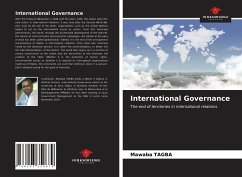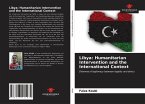After the Treaty of Wesphalia in 1648 until the years 1945, the states were the sole actors in international relations. It was only after the Second World War that, truly by the will of the latter, organizations such as the United Nations began to act on the international scene as actors. From this observed phenomenon, the world, through the accelerated development of the Internet, the means of communication and economic exchanges, will vibrate at the pace of what has been called globalisation. Indeed, it is the end of the omnipotence pre-eminence of States in international relations. From what was reserved solely for the domestic domain, it is rather the universalization, or better still the internationalization, of discretions. The world then opens up in a practice of unitary construction to the extent that the discomfort of one becomes the problem of the other. Whether it is the protection of human rights, environmental issues or whether it is regional or sub-regional organisations made up of States, the constraints are such that nothing is done in a vacuum. Each individual acting for the good of humanity.
Hinweis: Dieser Artikel kann nur an eine deutsche Lieferadresse ausgeliefert werden.
Hinweis: Dieser Artikel kann nur an eine deutsche Lieferadresse ausgeliefert werden.








